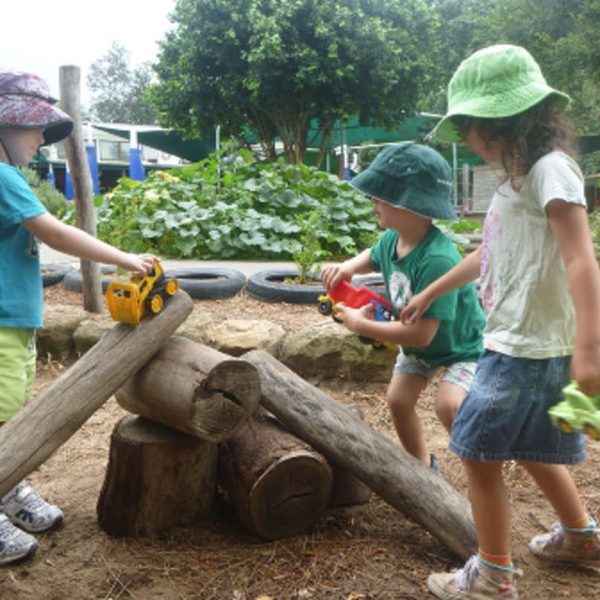Dr Helen Logan shares wisdom on wellbeing

Dr Helen Logan has more than 30 years of experience in leading early childhood programs and services, and has recently turned her focus to examining the wellbeing of early childhood educators and its links to factors such as educators’ work environments.
An extract of her learning appears below. For the full transcript of Dr Logan’s work, see here.
It starts with wellbeing
Dr Logan began her observations by noting that while Quality Area Four of the National Quality Standard (NQS) addresses issues such as rostering, continuity of staffing, collaboration, and professional standards, there is less detail about how staff wellbeing should be considered in relation to their work practices with young children – an equally crucial aspect of staffing.
“Educators need support for professional growth and their work-related well-being for them to provide responsive interactions with children because when an educator’s wellbeing is compromised, it has implications for children’s learning,” she shared.
“Effective strategies and practices to maintain and improve staff wellbeing must take into account the emotional demands of working with young children, support from service leaders to develop a positive work climate and ongoing learning to develop professional practice.”
Dr Logan noted that another key consideration is the substantial amounts of emotional energy educators use in their daily interactions with children and families.
“Educators need environments that support them to manage daily demands with children and families that are multi-dimensional,” Dr Logan said.
“Supervisory staff who are attuned to the emotional load experienced by their educators, such as directors and service managers, are instrumental in developing emotionally sensitive and trusting relationships that provide strong mental health and well-being supports.”
Broader systems to support wellbeing
While educator wellbeing has predominantly been focused on individual educators, there is a need to also have attention on the broader systems that support staff wellbeing.
Dr Logan recommended several strategies to address workplace challenges and support professional knowledge and skill development.
“One useful strategy that is gaining traction for supporting educators as well as centre directors is clinical supervision, which is used widely in other professions,” Dr Logan said.
A recent study, the Early Childhood Educators’ Wellbeing project (ECEWP), outlines the multiple benefits for staff from professional supervision, including leading to greater levels of staff resilience.
“Professional supervision offers relationship-based, reflective, and strengths-based sessions that provide a formal process to assist staff in managing and coping with difficult and stressful work-related situations,” Dr Logan said.
“Programs of professional supervision offer much needed opportunities for reflection and debriefing in a supervised environment, usually facilitated by specialist staff with an objective perspective,” she added.
Mentoring, which encourages all staff to challenge and learn from one another’s strengths and skills, is another worthwhile strategy, with mentoring relationships encouraging the development of professional growth and identity.
Working with external consultants, or critical friends, can be useful in improving and sustaining quality pedagogical practice, she continued.
To maximise the benefits of these programs, Dr Logan said they should be implemented alongside professional learning.
“By engaging in continual professional learning, both educators and Centre Directors continue to translate their extensive knowledge of child development, play, pedagogy, health, safety, and nutrition into meaningful programs to support children’s learning,” she said.
Healthy and productive work environments
“For educators to enhance children’s learning, they need work environments that are well resourced, healthy, and safe,” Dr Logan said.
“Increased attention to educator work environments improves an educator’s ability to provide high-quality early education for children.”
In a recent study by Cummings and colleagues, researchers outline the importance of greater attention to quality work environments which support educators to enhance children’s learning, whereas inadequate or limited workspaces can have negative effects on educators’ well-being.
“Well-designed work environments are characterised by meeting rooms for educators that are separate and private from rooms used by children and provide opportunities for non-contact planning time, as well as a much-needed break space,” Dr Logan explained.
Attending to these features of work environments provides staffing arrangements that lead to greater continuity of staff and higher levels of staff morale and motivation.
“Improving these conditions for staff also allows them to enhance the quality of their practice, and also supports opportunities for professional conversations between teams of educators,” Dr Logan said in closing.
Popular

Workforce
Policy
Quality
Practice
Provider
Research
ECEC must change now, our children can’t wait for another inquiry
2025-07-02 07:47:14
by Fiona Alston

Practice
Provider
Quality
Workforce
Leading with Curiosity: How distributed leadership is redefining the future of early childhood education
2025-07-03 07:42:07
by Contributed Content

Events News
Workforce
Marketplace
Practice
Quality
Provider
Research
An exclusive “Fireside Chat” with ECEC Champion Myra Geddes
2025-07-01 11:25:05
by Fiona Alston













